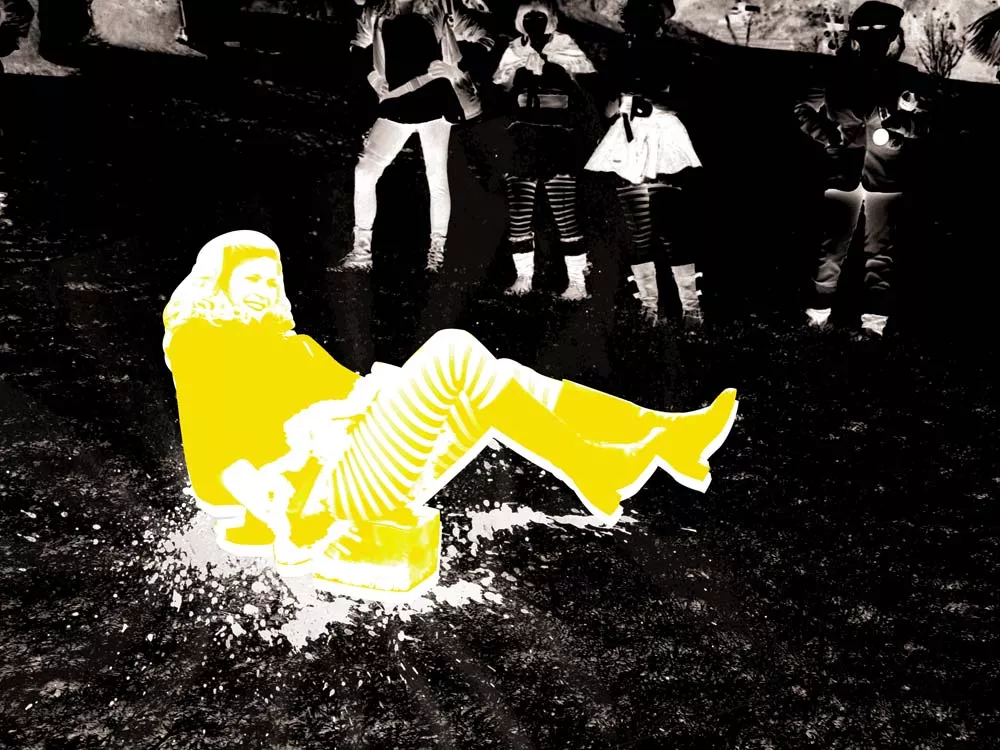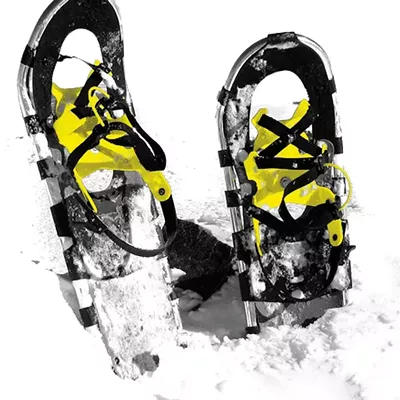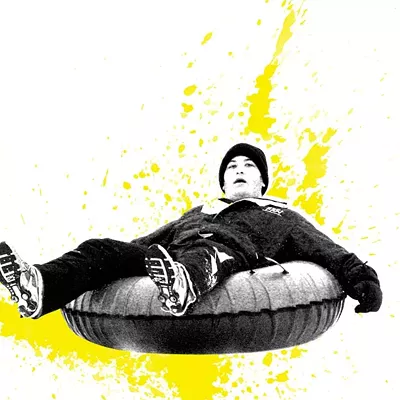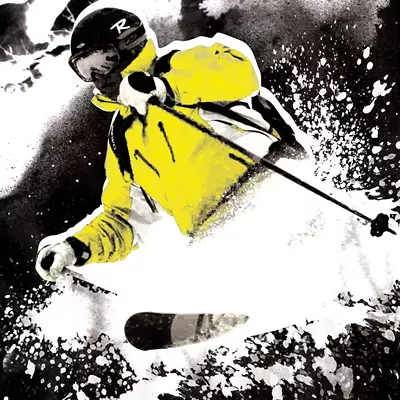We’re nearing that season when local news stations lug their “Snowpocalypse” graphics from out of cold storage. Alas, TV binging is only enthralling for so long, meaning you’re going to eventually have to find some other stuff to do. So while your Snuggie is in the wash — yes, those do need to be washed — why not venture outdoors? Below are a few of the more unique activities to engage in. You know, stuff other than run-of-the-mill winter pastimes like skiing, snowboarding and snow-phallus sculpting.
ICE BLOCKING
The act of rocketing down a hill while unstably seated on a block of ice.
You’ll need: A square container as wide as you, water, a freezing place
Optional: a bit of rope slightly wider than your container
Where to go: A hill without dangerous things to collide with at the bottom (roadway, trees, cars, lawyers). Holmberg Park is a good place to start.
The rundown: Ah, yes. This sport was long thought to be solely a summertime activity. But let’s rethink that for, like, one second. So, ice lasts longer in cold, riiight? And there’s not always enough snow for winter sledding, riiight? So if you were to ice-block in winter, you could potentially have longer, faster fun, riiight? Flawless logic.
Here’s how you make it happen. First, take your container, fill it with water and freeze it. If you want, you can lay the rope across the length of the container, pushing it down in the middle so it freezes well into the middle of the ice block. The ends will act as handles — and handles are highly recommended.
After your block is frozen, take it and proceed with some people you like (who have cell phones) to a nearby hill. Go to the top of it and look around. This step is very important. We don’t care how badass a hill is — it could be the Matterhorn of the Inland Northwest — if it doesn’t feature a wide, open expanse with absolutely nothing at the base, move along.
Once you do find the perfect bit of ice-blocking real estate, sit down, hold on and go. Sleds are for the weak.
ICE FISHING
The act of cutting a small hole in a frozen body of water and putting a line connected to a hook with stuff that doesn’t smell very good — but fish seem to like it — and attempting to lure fish.
You’ll need: Ice saw or auger (drilling device, city slicker), fishing pole, line, hook, bait, something to sit on, fishing license
Optional: Spear (good luck with that)
Where to go: Loon Lake, Liberty Lake, Sprague Lake, Hog Canyon
The rundown: Imagine you are a fish. Things have started to quiet down in your environment — there’s not as much sloshing around going on up near the surface. Things are getting chilly, which makes you kinda sleepy and less worried about being hunted. That sheet of ice overhead helps. Everything is quiet until OHMYHEAVENS SOMETHING SHINY AND FOOD. You are yanked to the surface where the last thing you hear is, “Damn. I thought he was going to be bigger.”
That’s ice fishing for you. You can pick up equipment at the General Store, which has everything you need to get started. But be careful. The General Store’s Pete Roundy says this area is “Really hit and miss,” because lakes don’t always freeze over solidly enough to support ice fishers. Some wind up falling through.
“Safety is really the main key,” says Roundy. “Make sure you’re with someone who’s done it before.”
If you are able to go, Roundy says ice fishing can be a lot of fun, even if you don’t catch anything. But you have a pretty good shot. As Roundy points out, “Fish don’t stop eating.”
Not until you eat them, anyway. Ha! Being at the top of the food chain is neat.
ICE CLIMBING
The act of taking many kinds of pointy things and using them to hoist oneself up or along iced surfaces, like frozen waterfalls.
You’ll need: Ice axe, ice tool, rope, crampons, ice screws, warm clothing, a person who knows what the eff they are doing
Where to go: Locally, the closest spot is a frozen waterfall right by the Indian Canyon Golf Course
The rundown: Climbers scale a variety of slopes — some relatively flat and requiring little more than some mountaineering shoes and a good ice axe, other surfaces are completely vertical and are therefore much more difficult to scale.
A man familiar with the sport is Brett Jessen of Mountain Gear. He says ice climbing is similar to rock climbing, but the ice equipment allows you to take advantage of smaller holds. Equipment can be rented or purchased at local retailers like Mountain Gear and Mountain Goat Outfitters.
Either way, you’ll need someone to help you figure this out if you’re inexperienced. Jessen says beginners should contact the Spokane Mountaineers for lessons or clinics.
“They definitely cater to the beginner and getting them psyched,” says Jessen.
The mountaineers offer a variety of seminars, but the ice climbing one in particular will set you back about $45 for the seminar plus the cost of lodging, which is about $24 a night for lodging. You’ll even get a chance to go to Canada. Awesome.


















